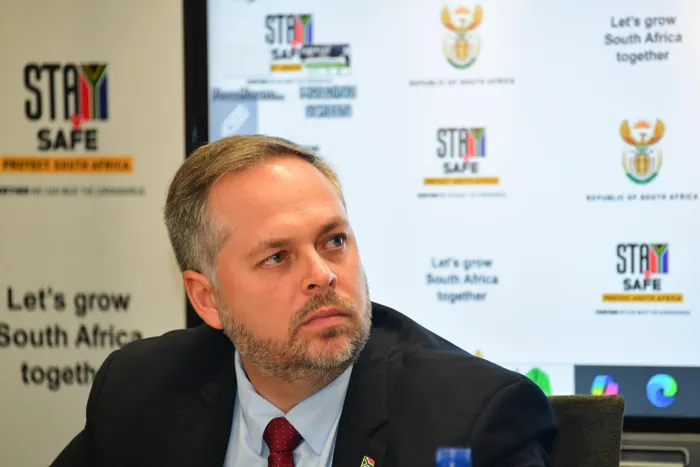
Home Affairs Minister Leon Schreiber
Image: Ntswe Mokoena/GCIS
South Africa’s Home Affairs Department is facing a backlash from fintech TymeBank over its decision to raise fees for real-time identity verification services by 6 500%, a move it argues is necessary to safeguard national security and fix a failing system.
Digital lender TymeBank on Tuesday accused the government of adopting an “anti-poor” and “anti-competitive” policy after the Department of Home Affairs gazetted new tariffs for banks and financial institutions accessing the National Population Register (NPR). The bank said the sharp increase in costs – from R0.15 to R10 per real-time verification – would unravel years of progress in digital transformation and financial inclusion.
TymeBank co-founder and CEO Coenraad Jonker warned that the new fees, effective July 1, would make it impossible to offer South Africa’s only accessible, zero-fee bank account to millions of grant recipients and informal workers.
“This is not how public infrastructure should function,” Jonker wrote in an open letter to Home Affairs Minister Leon Schreiber. “Essential digital services must be reliable, affordable, and accessible. Anything less is a betrayal of the trust South Africans place in their government.”
TymeBank is calling on national leadership - including the President, the Minister of Finance, and the Reserve Bank Governor to intervene.
The open letter urges the Department to halt implementation of the fee increase and re-engage with industry stakeholders to find a more transparent and sustainable path forward. Jonker emphasises that TymeBank is not opposing system upgrades or cost recovery.
“We are calling for a phased, performance-linked model that enables planning and protects financial access for underserved communities. “This decision puts the Department on the wrong side of history. Digital transformation should open doors, not close them,” said Jonker.
The government, however, said in a statement the current pricing model - in place since 2013 - has resulted in heavy abuse and overwhelmed systems, contributing to verification failure rates of over 50%. According to the ministry, these outages have hindered service delivery and undermined national security.
“This is a matter of national security, plain and simple,” Schreiber said. “The artificially low pricing structure has led to such severe under-investment in the NPR that it now poses a direct threat to financial inclusion, to combating financial crime, and to the integrity of our identity infrastructure.”
He said effective from July 1 , and following significant development work by the Department and its service providers, a new online verification system (OVS) will be rolled-out to all users.
"The upgraded OVS functions as a sleek, modern system that delivers what it was designedto do. It now performs in real-time and the failure rate has been reduced to below 1%. For the first time, the new system will also introduce an option for users to do “non-live batch verifications” during off-peak hours at a significantly lower fee than real-time verifications. This will offer both a cost-effective alternative to real-time verifications and incentivise users to stop overloading the OVS’ live queue, reducing the problem of “system offline” at frontline Home Affairs offices," Schreiber said.
Support from labour
The fee adjustment drew praise from the Cosau which said it was long overdue.
“This decades-long de facto subsidy for financial institutions has created a perverse crisis,” Cosatu said in a statement. “The system’s being continuously overwhelmed by repeat requests has compounded an already overstretched Home Affairs.”
Cosatu said the additional revenue would help modernise Home Affairs’ infrastructure and fill critical vacancies, reducing queues and downtime at public offices. The union federation added it would oppose any attempt by banks to pass the new charges on to consumers.
“Cosatu will be engaging its affiliates organising workers across the banks, financial institutions and the retail sectors, Sasbo and Saccawu, to ensure that the cost reflective charges put in place by the Department are not used as an excuse by these private sector institutions to increase banking and related fees charged to customers. These institutions have made sufficient profits over many years and must resist their addiction to pickpocketing workers. This is a matter that Cosatu will be raising with the Financial Sector Conduct Authority and the Banking Association as well," it said.
BUSINESS REPORT